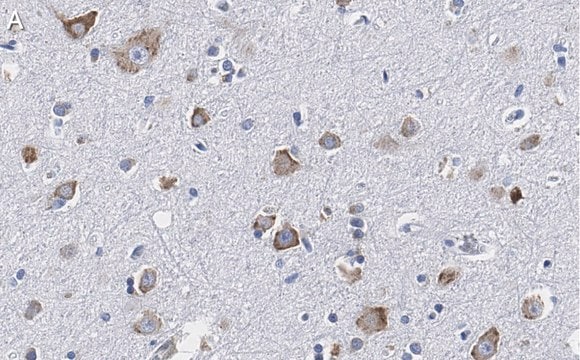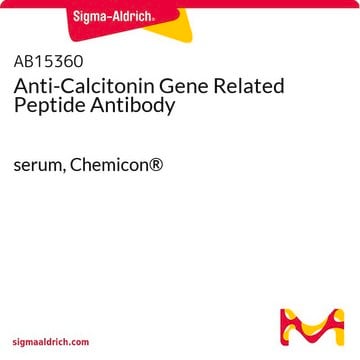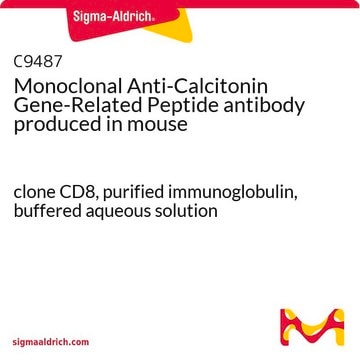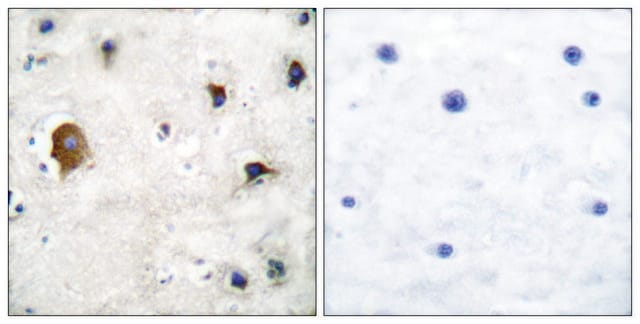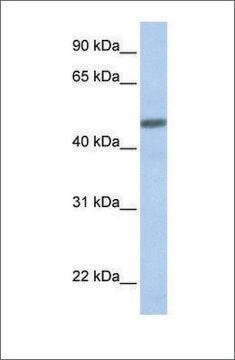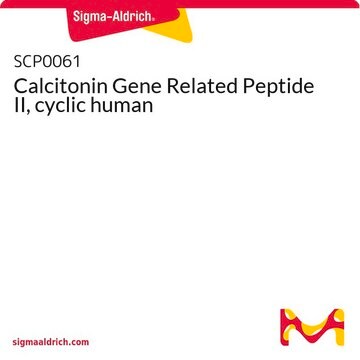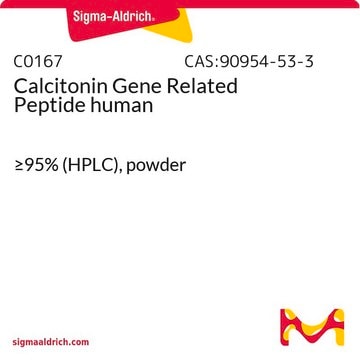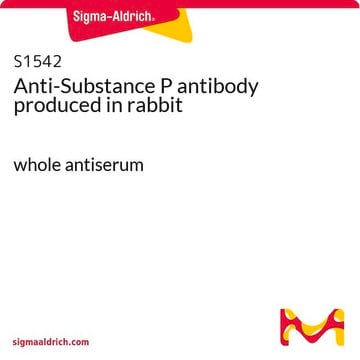C8198
Anti-Calcitonin Gene Related Peptide antibody produced in rabbit
whole antiserum
Synonym(s):
CGRP Antibody - Anti-Calcitonin Gene Related Peptide antibody produced in rabbit, Cgrp Antibody, Anti-CGRP
About This Item
Recommended Products
biological source
rabbit
Quality Level
conjugate
unconjugated
antibody form
whole antiserum
antibody product type
primary antibodies
clone
polyclonal
contains
15 mM sodium azide
species reactivity
rat
packaging
antibody small pack of 25 μL
UniProt accession no.
shipped in
dry ice
storage temp.
−20°C
target post-translational modification
unmodified
Gene Information
rat ... Calca(24241)
General description
Specificity
Immunogen
Application
- dot blot immunoassay
- fluorescent labeling
- confocal microscopy
- immunohistofluorescence
- epifluorescence imaging
Biochem/physiol Actions
Quantity
Physical form
Storage and Stability
Disclaimer
Not finding the right product?
Try our Product Selector Tool.
recommended
Storage Class Code
10 - Combustible liquids
WGK
WGK 3
Flash Point(F)
Not applicable
Flash Point(C)
Not applicable
Choose from one of the most recent versions:
Certificates of Analysis (COA)
Don't see the Right Version?
If you require a particular version, you can look up a specific certificate by the Lot or Batch number.
Already Own This Product?
Find documentation for the products that you have recently purchased in the Document Library.
Customers Also Viewed
Our team of scientists has experience in all areas of research including Life Science, Material Science, Chemical Synthesis, Chromatography, Analytical and many others.
Contact Technical Service



